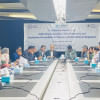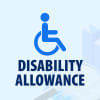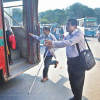Persons with disabilities
People with disabilities, at a recent workshop, have demanded equal access to all tiers of politics and we unequivocally endorse their demand. Although many programmes have been launched for their education, health and employment, they still have little or no representation in politics and decision making, a hindrance to their development as citizens of a free country. Both the state and the society must recognise the inherent dignity and worth as well as the equal and inalienable rights of all citizens of the country, including those who are differently abled as the foundation of freedom, justice and progress.
Given the prejudice and stigma, it is easy to imagine how disability might be regarded as a vote loser, or activists might be put off supporting disabled candidates who need extra support. But the fact is, they are equally, if not more, able to lead a meaningful life as active members of the society. We, therefore, agree with the deputy speaker of the Jatiyo Sangsad who expressed the view that a person with disability, if capable, can be a member of the parliament.
Before that can happen, certain steps must be taken, with a special focus on women, such as protecting the right of persons with disabilities to vote in elections without intimidation, and to stand for elections, to effectively hold office and perform all public functions at all levels of government, facilitated by the use of assistive and new technologies.

 For all latest news, follow The Daily Star's Google News channel.
For all latest news, follow The Daily Star's Google News channel. 







Comments